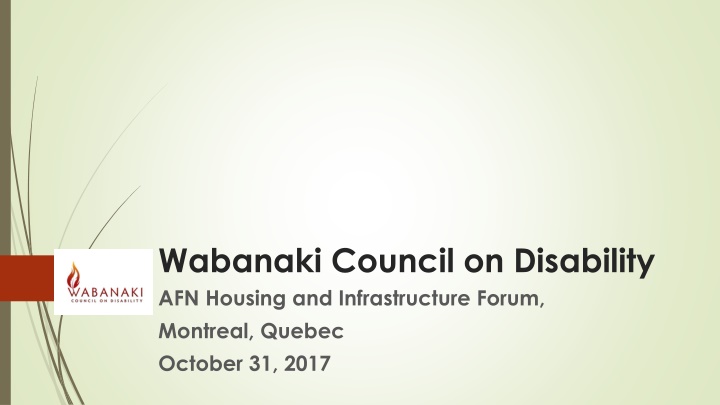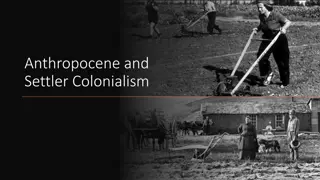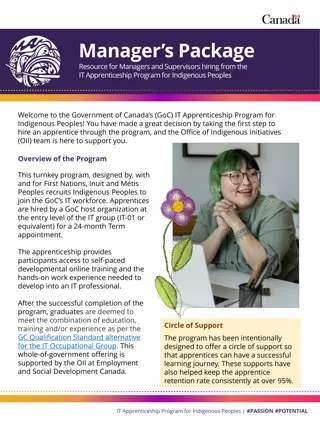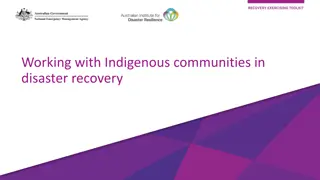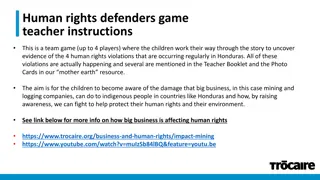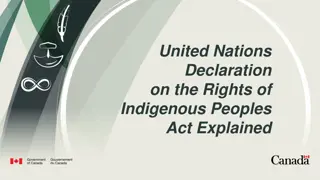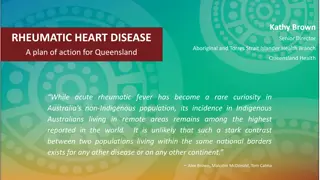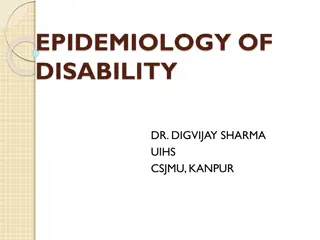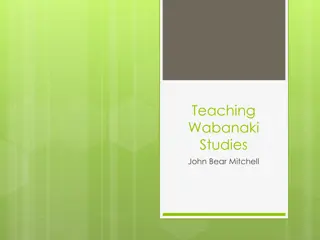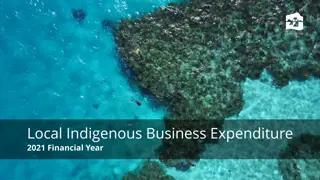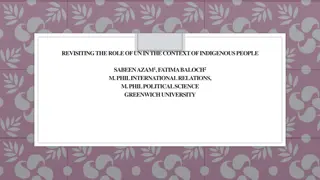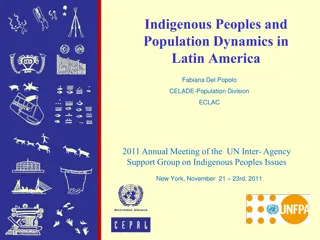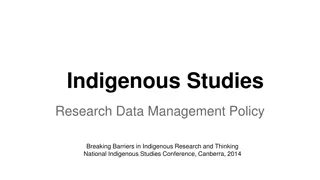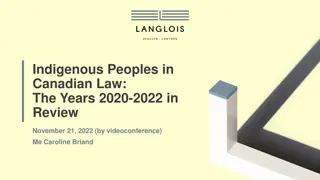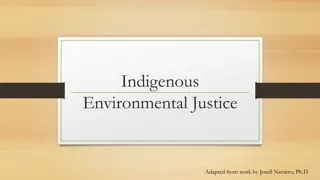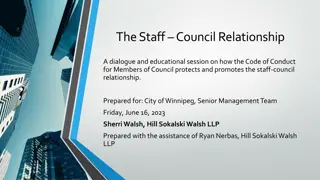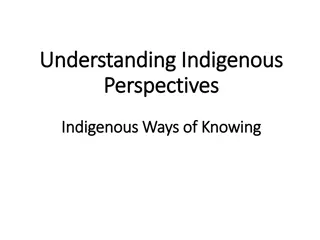Wabanaki Council on Disability: Advancing Indigenous Rights
The Wabanaki Council on Disability strives to advance the rights of Indigenous persons with disabilities in Canada, with a focus on key issues such as mental health, safety, poverty, and housing/homelessness. Through various activities and engagements, they aim to promote inclusivity and accessibility while advocating for policy changes and improved services. The Council also actively engages in international forums and domestic legislations to ensure the protection and empowerment of Indigenous individuals with disabilities.
Download Presentation

Please find below an Image/Link to download the presentation.
The content on the website is provided AS IS for your information and personal use only. It may not be sold, licensed, or shared on other websites without obtaining consent from the author.If you encounter any issues during the download, it is possible that the publisher has removed the file from their server.
You are allowed to download the files provided on this website for personal or commercial use, subject to the condition that they are used lawfully. All files are the property of their respective owners.
The content on the website is provided AS IS for your information and personal use only. It may not be sold, licensed, or shared on other websites without obtaining consent from the author.
E N D
Presentation Transcript
Wabanaki Council on Disability AFN Housing and Infrastructure Forum, Montreal, Quebec October 31, 2017
Background The Wabanaki Council on Disability advances the economic, social and cultural, spiritual civil and political rights of 15,000 Mi'kmaq, Maliseet and Passamaquoddy persons with disabilities. Indigenous persons with disabilities respect and elect their respective political representatives and value the principle of Nothing about us without us More than 1 in 3 of our people live with some form of a disability compared to 1 in 5 in the rest of Canada
Priority Issues Mental Health and Addictions Safety Poverty and Housing/Homelessness
2017/2018 Activities Atlantic Roundtable on Indigenous Disability: Held in March 2017 Talking Circles on Disabilities: Communities Justice and Public Safety: FASD, Violence Survey on Homelessness and Housing, Employment and Training, Poverty and Inclusion, Supports and Services, Children and Youth, Accessibility and Safety Resource Center: December 3, 2017
International UN Declaration on the Rights of Indigenous Peoples (UNDRIP) Permanent Forum 2018 UN Convention on the Rights of Persons with Disabilities (UNCRPD) Review 2018 UN Universal Periodic Review (UNUPR) October 2017
Domestic Legistlation Inter-Ministerial Meeting, December 10, 2017 Accessibility: Convene a meeting between Federal and Indigenous Leaders Built Environments Telecommunications Services and Programs Transportation Procurement Employment
Safety: Homelessness and Housing March 2017 Atlantic RoundTable on Indigenous Disability We heard from Vince Klyne, CMHC Regional Manager for First Nations Housing for Quebec and Atlantic regions; He explained that the Government of Canada is committed to developing a National Housing Strategy that will address housing challenges across the country; The WCD hopes that consultations and discussions on the National Housing Strategy will include issues expressed by indigenous persons with disabilities:
Safety: Homelessness and Housing The housing backlog is an added complexity for getting a house as a person with a disability. Getting repairs done inside and outside of the house is a larger challenge; Some houses that Indigenous persons with disabilities live in DO NOT have 2 exits available which is a huge safety concern especially in the case of fire safety issues; Access ramps for homes are costly to build and maintain but they are a necessity;;
Safety: Homelessness and Housing Winter is a particular time of challenges with snow, ice and cold temperatures complicating routines such as getting groceries, keeping driveway and walkway clear as well as entrance to the home; Hearing impaired persons need visual safety aids including visual fire alarm sensors and visual doorbells Many Band buildings have access ramps to get into the building however there is little to no accessibility in the building including proper access to washrooms or specific stalls in washrooms;
Safety: Homelessness and Housing There is a general need to address respite care for caregivers and parents of persons with disabilities, there is a serious lack of opportunity for people helping persons with disabilities to have some time of their own; Communities need help and resources to make housing plans and strategies within limited funding, more options need to be established for communities to be able to provide quality, safe houses that accommodate persons with disabilities; Delegates stated that there should be dedicated housing funds for persons with disabilities;
Safety: Homelessness and Housing Following the March forum the WCD is conducting a regionwide study on Indigenous persons with disabilities; Through this study we will be gathering more information on important issues including housing and accommodations of First Nations persons with disabilities; Through this research project the WCD will establish a baseline database of the issues for Indigenous persons with disabilities; I want to acknowledge the Federal Office for Disability Issues for organizing resources for the Roundtable.
Contact Wendall Nicholas Chairperson Wabanaki Council on Disability P.O. Box 2141, Neqotkuk Maliseet Nation New Brunswick E7H 5M7 Phone: 506.273.7821 Cell: 514.943.5144 Email: wendall.nicholas@indigenousdisability.org Web: www.indigenousdisability.org
